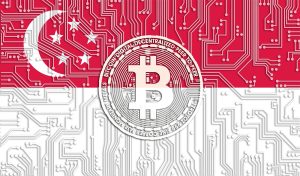Singapore’s central bank has proposed a range of new regulations on cryptocurrency trading to shield consumers from the volatility of the novel digital assets.
The Monetary Authority of Singapore (MAS) revealed the measures in two consultation papers that it published yesterday, as Reuters reported. Among the proposed measures are bans on cryptocurrency trading businesses offering incentives to attract retail customers and on the use of credit lines to fund cryptocurrency purchases. Retail investors in Singapore may also have to undergo a risk awareness assessment before being allowed to trade cryptocurrencies.
The MAS said in a press release yesterday that because these digital tokens play a supporting role in the broader digital asset ecosystem, it “would not be feasible to ban them.” But it said that trading them was “highly risky and not suitable for the general public.”
“Therefore, to reduce the risk to consumers from speculative trading in cryptocurrencies, MAS will require that [crypto] service providers ensure proper business conduct and adequate risk disclosure,” it said. Between now and December 21, the MAS will gather feedback from the crypto industry on the suggested restrictions and its efforts to regulate the sector.
The proposed restrictions are the latest attempt by the city-state to rein in cryptocurrencies and other digital assets. Over the past few years, Singapore has become a popular destination for crypto and blockchain firms – Crypto.com, whose advertisements are now seen in sporting arenas around the world, is headquartered in the city-state – but the volatility of the market, demonstrated by a series of sudden crashes over the past year, have made the central bank and financial regulator increasingly skeptical.
The MAS has broadly discouraged the Singaporean public from speculative trading in cryptocurrencies. In January, it introduced restrictions on advertising of crypto services, with Loo Siew Yee, the central bank’s assistant managing director for policy, payments, and financial crime, arguing that while the central bank supported the development of blockchain technology “in value-adding use cases,” the trading of cryptocurrencies was “highly risky and not suitable for the general public.”
As per Channel News Asia, the advertising ban included “placing any form of advertisements or promotional materials in public areas, such as public transport and related venues, public websites, broadcast and print media, and the provision of physical automated teller machines (ATMs).”
When crypto trading companies like ByBit, FTX, and Crypto.com sought to evade the restrictions by sponsoring Formula 1 teams during the Singapore Grand Prix, the MAS tightened up on that as well.
The regulation reflects MAS’ own divided position toward cryptocurrencies and blockchain technology. On the one hand, the financial regulator has talked up Singapore as a bastion of financial innovation, encouraging crypto trading platforms to set themselves up in the city-state, and talking up the potential of digital assets. It has made clear that Singapore wants to develop and actively promote a digital-asset ecosystem, and has employed blockchain technology for Project Ubin, its central bank digital currency project.
On the other hand, as the industry’s volatility has become clear – between November 2021 and June of this year, the global crypto market lost $2 trillion in value, wiping out investors across the globe – it has expressed skepticism about the actually existing state of the digital assets sector. In August, MAS Managing Director Ravi Menon acknowledged that cryptocurrencies lacked the fundamental qualities of money and had few uses outside of pure speculation. “Cryptocurrencies have taken [on] a life of their own outside of the distributed ledger, and this is the source of the crypto world’s problems,” he said, according to the Wall Street Journal.
Singapore has long desired to become both a center of technological innovation and prudent financial management. As such, the moves by the MAS to protect consumers from the crypto mania are sensible and probably inevitable, given that the digital tokens are at best an insecure and volatile asset and at worst a borderline grift.

































